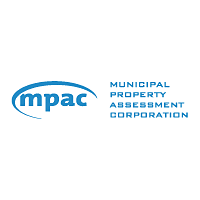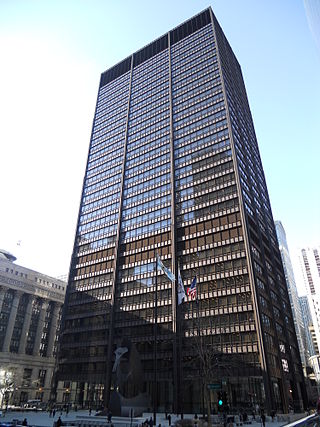The courts of England and Wales, supported administratively by His Majesty's Courts and Tribunals Service, are the civil and criminal courts responsible for the administration of justice in England and Wales.
The court system of Canada forms the country's judiciary, formally known as "The King on the Bench", which interprets the law and is made up of many courts differing in levels of legal superiority and separated by jurisdiction. Some of the courts are federal in nature, while others are provincial or territorial.
The federal judiciary of the United States is one of the three branches of the federal government of the United States organized under the United States Constitution and laws of the federal government. The U.S. federal judiciary consists primarily of the U.S. Supreme Court, the U.S. Courts of Appeals, and the U.S. District Courts. It also includes a variety of other lesser federal tribunals.
A rent assessment committee is a tribunal in England and Wales set up under the Rent Acts whose main task is to assess fair and market rents of properties referred to it. There is a statutory right of appeal to the High Court of England and Wales and thence to the Court of Appeal.
The Circuit Court of Ireland is an intermediate level court of local and limited jurisdiction which hears both civil and criminal matters. On the criminal side the Circuit Court hears criminal matters tried on indictment with a judge and jury, except for certain serious crimes which are tried in either the Central Criminal Court or the Special Criminal Court. On the civil side the Circuit Court has a considerable parallel jurisdiction — including equitable remedies — with the High Court but normally cannot award damages of more than €75,000. The Circuit Court also hears de novo appeals from the District Court in both civil and criminal matters.
Tax assessment, or assessment, is the job of determining the value, and sometimes determining the use, of property, usually to calculate a property tax. This is usually done by an office called the assessor or tax assessor.

The Municipal Property Assessment Corporation (MPAC) administers property assessments and appeals of assessment in the province of Ontario, Canada. MPAC determines the assessed value for all properties across Ontario. This is provided in the form of an Assessment Roll, which is delivered to municipalities throughout the province on the second Tuesday in December. Municipalities then take the assessment roll, and calculate property taxes for each individual property in their jurisdiction. MPAC complains that taxpayers often confuse MPAC's role as an assessment agency for taxes; MPAC responds that it only provides assessments. Municipalities set the tax rates and distribute the tax burden based on the assessed values provided by MPAC.
Union Pacific Railway Co. v. Cheyenne, 113 U.S. 516 (1885), was an appeal from the Supreme Court of the Territory of Wyoming regarding a bill charging that the collection of an illegal tax would involve the plaintiff in a multiplicity of suits as to the title of lots being laid out and sold, which would prevent their sale, and which would cloud the title to all his real estate, states a case for relief in equity.

The Circuit Court of Cook County is the largest of the 24 circuit courts in the judiciary of Illinois as well as one of the largest unified court systems in the United States – second only in size to the Superior Court of Los Angeles County since that court merged with other courts in 1998.

Most local governments in the United States impose a property tax, also known as a millage rate, as a principal source of revenue. This tax may be imposed on real estate or personal property. The tax is nearly always computed as the fair market value of the property, multiplied by an assessment ratio, multiplied by a tax rate, and is generally an obligation of the owner of the property. Values are determined by local officials, and may be disputed by property owners. For the taxing authority, one advantage of the property tax over the sales tax or income tax is that the revenue always equals the tax levy, unlike the other types of taxes. The property tax typically produces the required revenue for municipalities' tax levies. One disadvantage to the taxpayer is that the tax liability is fixed, while the taxpayer's income is not.

The Upper Tribunal is a superior court of record and general tribunal in the United Kingdom.

The government of North Carolina is divided into three branches: executive, legislative, and judicial. These consist of the Council of State, the bicameral legislature, and the state court system. The Constitution of North Carolina delineates the structure and function of the state government.
The Alberta Municipal Government Board (MGB) is a provincial quasi-judicial tribunal in Alberta, Canada. The MGB is affiliated with the Alberta Ministry of Municipal Affairs. The MGB is established pursuant to the Municipal Government Act (MGA), which authorizes it to hear: appeals from subdivision applications involving a provincial interest, appeals of linear property assessments, intermunicipal disputes, municipal annexations, and other matters.
The judiciary of Illinois is the unified court system of Illinois responsible for applying the Constitution and law of Illinois. It consists of the Supreme Court, the Appellate Court, and circuit courts. The Supreme Court oversees the administration of the court system.

The government of Cook County, Illinois, is primarily composed of the Board of Commissioners, other elected officials such as the Sheriff, State's Attorney, Treasurer, Board of Review, Clerk, Assessor, Cook County Circuit Court judges and Circuit Court Clerk, as well as numerous other officers and entities. Cook County is the only home rule county in Illinois. The Cook County Code is the codification of Cook County's local ordinances.
The Cook County Board of Review is an independent office created by statute by the Illinois General Assembly and is governed by three commissioners who are elected by district for two- or four-year terms. Cook County, which includes Chicago, is the United States' second-most populous county with a population of 5.2 million residents. The Cook County Board of Review holds quasi-judicial powers to adjudicate taxpayer complaints or recommend exempt status of real property.
The Patent Trial and Appeal Board (PTAB) is an administrative law body of the United States Patent and Trademark Office (USPTO) which decides issues of patentability. It was formed on September 16, 2012, as one part of the America Invents Act. Prior to its formation, the main judicial body in the USPTO was the Board of Patent Appeals and Interferences (BPAI).

The Judiciary of the Netherlands is the system of courts which interprets and applies the law in the Netherlands.
Scott R. Britton is an elected American local government official in Cook County, Illinois.
The Cook County Treasurer is the treasurer of county government in Cook County, Illinois






